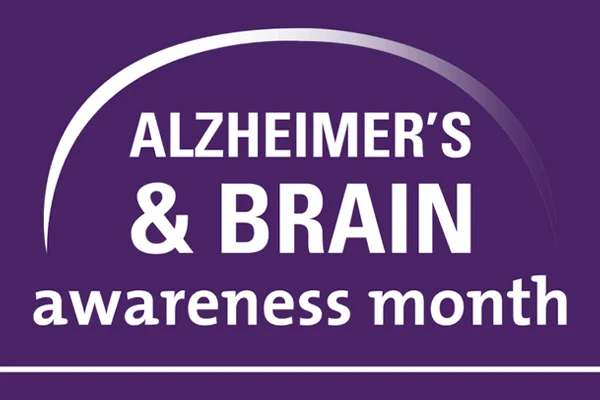Last Updated on March 30, 2023
Overview
Signs perimenopause is ending – Perimenopause is a natural transition period every female body undergoes to indicate the onset of menopause. The word ‘peri’ means around and ‘menopause’ refers to the phase when the menstrual period stops for about 12 months consecutively, marking the end of the fertility period. Perimenopause is a common state in which women tend to feel vulnerable and weak because of constant hormonal fluctuations.
Every woman experiences menopause at different ages under the influence of hormones, chemicals, and biological pressure therefore, the signs of perimenopause are ending have no particular age.
The aim of this blog is to cover every aspect of the transition chapter from the early stage of perimenopause to the last stage of perimenopause until the onset of menopause.
What is Menopause?
The signs perimenopause is ending are evident usually between the ages of 45-55 years because of lower hormone levels indicating the onset of “menopause”. Menopause is a part of aging with an average expected onset at around 51 years. Symptoms of menopause are:
- Anxiety
- Mood changes – such as low mood or irritability
- Variation in skin conditions, (dryness, oiliness, adult acne)
- Trouble sleeping which makes women feel tired and irritable during the day
- Discomfort during sex
- Feelings of loss of self
What is Perimenopause?
Perimenopause acts as the transitional window for ovulation to cease and is known to start eight to ten years (a decade) before menopause. It often begins in the mid-forties and sometimes as early as the thirties. This transition period involves a whole range of symptoms from irregular, erratic periods to symptoms associated with menopause (hot flashes, sleep cycle disturbances, and vaginal dryness).
Both the ovarian hormones, estrogen, and progesterone play a vital role in regulating ovulation but the key feature that brings on symptoms of perimenopause is caused by the decrease in the female hormone, estrogen. Moreover, a drop in estrogen may cause changes in cholesterol levels or bone density.
The signs perimenopause is ending are indicated by the complete absence of the menstrual cycle for 12 months. Alongside the roller coaster of emotions women in the last stage of perimenopause undergo, due to constant hormonal variation some bodily changes that negatively impact their physical and mental health are also present that evoke perimenopausal depression.
Signs of Perimenopausal Depression:
- Fatigue,
- Loss of interest in doing things that were once enjoyed,
- In alertness,
- Lack of energy,
- Mood swings,
- Crying for hours without reason,
- Hot flashes,
- Insomnia
Viable Options for Treating Perimenopausal Depression:
As every individual is different, choosing what to use to treat menopause’s psychological effects is considered accordingly. Medications used are:
- Mental conduct treatment (CBT)
- Hormone replacement treatment (HRT)
- Counseling
- Meditation
Eating a healthy, balanced diet and being grateful on a regular basis can help cater to a few menopausal symptoms. Other cost-free activities such as yoga, meditation, and walking, can help you become more active and feel much better. There are multiple clinical research organizations like Revive Research Institute that are conducting clinical trials for women undergoing perimenopausal depression. The goal of these clinical trials is to investigate potential treatment options that may be able to help manage these conditions.
Risk Factors that Predispose Perimenopausal Depression
- Family history,
- Trauma,
- Abuse,
- Negative self-image,
- Smoking,
- Stagnant lifestyle,
- Low self-esteem, and
- Social awkwardness
Influence of Female Hormones on Mood Regulation
Hormones significantly influence the modulation of mood. Perimenopause is a point in time when estrogen levels significantly vary as a result of which serotonin and norepinephrine levels in the brain are adversely impacted.
Signs of Perimenopause
The perimenopausal symptoms might range from a few months to many years and are divided into two stages. The ‘early stage of perimenopause’ is characterized by variations in menstrual flow and cycle duration. Whereas, the last stage of perimenopause is the final stage before menopause strikes and is characterized by missed periods until it finally stops. The last stage of perimenopause consists of an array of symptoms, sharp decline in estrogen levels six months before menopause is one of the signs perimenopause is ending.
Early onset of menopause before the age of 40 is called “premature menopause”. The condition is either the result of medical illness, surgery, or primary ovarian insufficiency (menopause with no known cause, medical illness, or surgery).
What Are the Signs Perimenopause Is Ending?
Based on the outlook of symptoms, women can infer the signs perimenopause is ending however; the following symptoms conclude the last stage of peri-menopause:
- Long intervals between periods,
- Headaches less often,
- Stable Mood,
- Frequent Hot Flashes, and
- Reduced Sleep.
Long intervals between periods:
Prolong intervals between the periodic cycles of 60 days or more are one of the reliable signs perimenopause is ending and concludes the last stage of perimenopause.
Less frequent headaches:
Absurd hormonal fluctuation is one of the predisposing factors to the symptoms produced throughout the early and mid-stages of perimenopause. Albeit the hormonal imbalance still remains in the last stage of perimenopause, some degree of sustainability is achieved towards the end, gradually declining the frequent episodes of headache. PMS-induced debilitating headaches also ease out as the period starts to space out in the last stages of perimenopause.
Hot flashes:
As perimenopause draws too close, the recurrence of hot flashes tends to get worse because of drastic hormonal imbalances. The physiological mechanism behind hot flashes is similar to what happens when feeling hot, the blood vessels widen causing perspiration of the skin with an end outcome of cooling the skin.
The hormone estrogen regulates body temperature, hence decreased hormone levels in the last stage of perimenopause may result in problems with the brain thermostat producing hot flashes. Hot flashes also known as hot flushes are one of the most predominant signs perimenopause is ending, typically starting suddenly and persisting from one to five minutes.
Disturbed sleep cycle:
In due to the complexity of symptoms in the last stages of perimenopause, peaceful sleep becomes a tough dream to fulfill. Perimenopause-onset insomnia however becomes a problem that lasts through the menopause years.
Stable mood:
Mood instability is expected in the early stages of perimenopause associated with hormonal discrepancy and affects about 75% of the vulnerable women aging towards the end of their reproductive years. However, as the transitional window tapers towards menopause, the likelihood of mood challenges declines. The progress made is the result of constantly low hormone levels endured in the last stages of perimenopause.
Also read: What Are The 34 Symptoms Of Menopause?
Therapies to Combat Symptoms of the Last Stages of Perimenopause
Potential treatment options are available to combat intrusive, debilitating perimenopausal and menopausal symptoms. Hormonal therapy is considered one of the most effective treatment options to deal with bothersome symptoms.
These hormonal therapies include:
- Estradiol in the form of pills, patches, and vaginal cream.
Non-hormonal prescription medication, low-dose paroxetine can help with night sweats and hot flashes.
How Long to Expect Perimenopause to Last?
A common question among women is how long to expect perimenopause to last.
The answer to this varies from person to person because no two bodies are alike even among the same family members, therefore there are significant differences in the age and rate of ovarian function decline.
What is certain is that perimenopause will conclude and menopause will have arrived once you have gone 12 months without a monthly period (including spotting).
Often the answer to how long to expect perimenopause is a duration of four years. While some women can remain for more than four years in this phase of transition, others may be in it for a few months. If it has been more than a year since the last menstruation, the last stage of perimenopause is considered complete.
Final Thoughts
Menopause is a normal biological stage in every woman’s reproductive life cycle, but managing it can be difficult. Women should take better care of their bodies by having a better awareness of what to expect during perimenopause and how long to expect perimenopause to last will enable them to make necessary adjustments priorly so they can live comfortable transitions during menopause. Maintaining good physical health throughout our lives can also help us age gracefully and continue to lead full, active lives well in our menopausal years.




